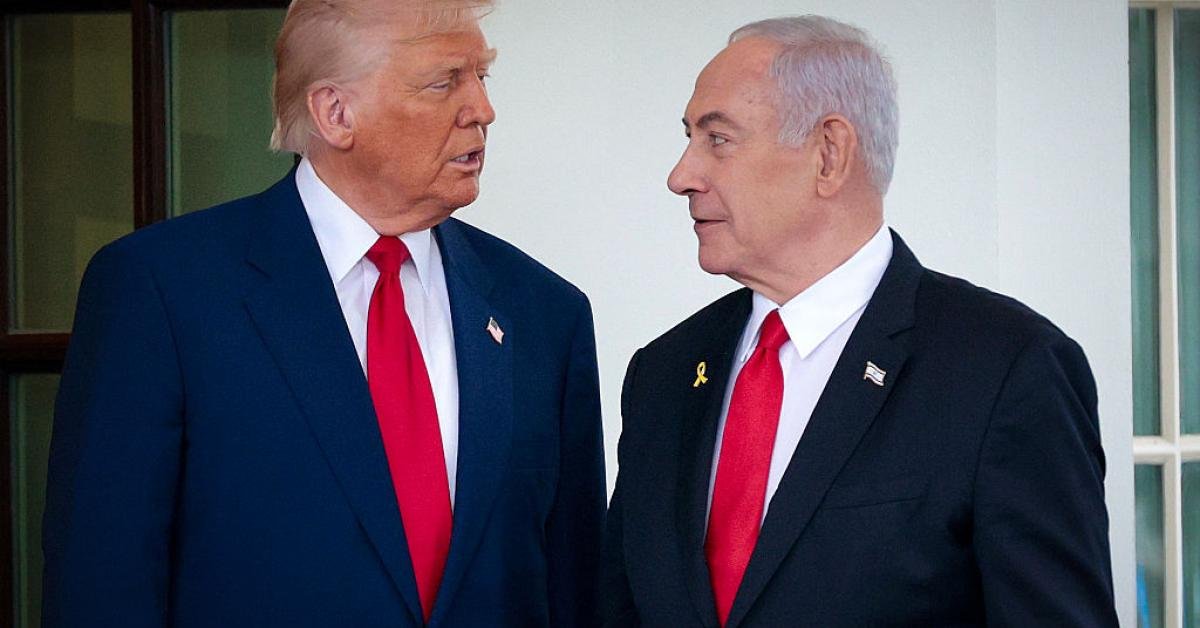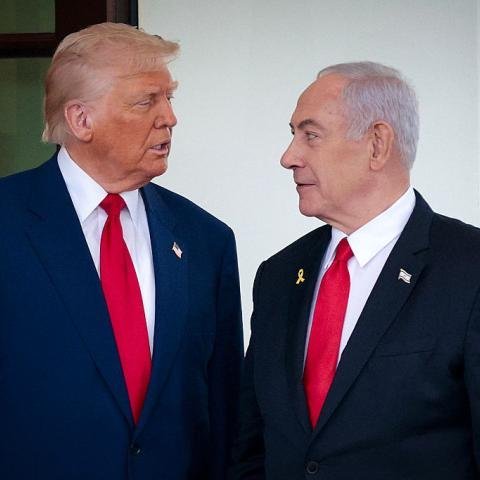
Arab states are warning that Israel’s actions against Hamas in Qatar and plans to further annex lands in the Palestinian West Bank threaten to end ceasefire talks and could even undermine President Donald Trump’s signature Abraham Accords.
Israeli Prime Minister Benjamin Netanyahu has defended his country’s actions as a way to pressure hard-line Hamas negotiators into making compromises and to achieve the primary goal of expelling the terrorist group completely from the Gaza Strip.
Dr. Majed Al Ansari, an advisor to Prime Minister Sheikh Mohammed bin Abdulrahman bin Jassim Al Thani, told Just the News in a wide-ranging interview that Netanyahu’s decision to order a strike in his country’s capital city of Doha undermined months-long ceasefire negotiations and was “wasting lives.”
Al Ansari: Israel is “not negotiating in good faith”
“Obviously now we know very clearly that Prime Minister Netanyahu was not negotiating in good faith. Now we know very clearly that he was leading us on, that he was wasting not only the time of the people who were working with this, the efforts, the tireless 24/7 work of everybody who was working in this, in Qatar, in Egypt and the United States,” Al Ansari told the “Just the News, No Noise” TV show earlier this week. “But, he was also wasting lives as we go along.”
Criticism has also come from the United Arab Emirates, an original signatory of Trump’s Abraham Accords, which reportedly warned the White House this week that planned Israeli annexations in the West Bank would undermine the pacts and endanger the American president’s plans to expand the agreements across the Middle East.
To further increase pressure on Hamas, and while Western nations call for a Palestinian state, Israeli leaders are currently mulling further annexations of territory in the West Bank, part of which is governed by the Palestinian Authority from Ramallah.
The White House did not respond to a request for comment from Just the News.
Attack on Doha angered Trump as well as Qatar’s leadership
Last week, Israel struck the Qatari capital of Doha with little warning, aiming to take out the senior leadership of Hamas. The strike, which was not cleared with Qatar or the United States, angered officials in both capitals.
For Qatari leadership, the Israeli strike at Hamas on its own soil endangers any negotiated solution to the Gaza conflict and is also seen as an affront to the Arab state’s sovereignty. Al Ansari told Just the News his country was grateful when the Trump administration joined other countries in condemning the Israeli airstrike last week.
Qatar hosted a summit of Arab and Islamic states in Doha on Monday in response. Qatar’s Emir Al Thani warned fellow Arab states about his take on Israel’s vision for the region and called the assault on his country “blatant, treacherous, and cowardly.” He also bluntly called the strike a “terrorist act.”
“You know, the complete surprise here is that a great ally of the West—sometimes called the greatest ally of the United States—would attack another ally of the United States, a state that was designated by the US as a major non-NATO ally,” Al Ansari told Just the News.
“We were completely surprised by this attack, we had absolutely no warning. President Trump told His Highness very clearly that he was not consulted nor informed, nor coordinated with Israel in this attack. And immediately, as the US got wind of the attack, Qatar was informed. But that was, sadly, 10 minutes after the attacks took place,” he said.
“Let me tell you one thing, it will take more than the bullying tactics of Prime Minister Netanyahu to change the DNA of the Qatari people,” Al Ansari said. “We have always believed in peace.”
President Trump was not happy with the strikes either. The strike particularly upset the White House because it came as Hamas was considering the latest U.S. ceasefire and hostage exchange proposal, Just the News previously reported.
Experts say the push for statehood stalled peace talks before the attack
“I’m not thrilled about the whole situation,” Trump said following the strikes. “I was very unhappy about it, very unhappy about every aspect, and we got to get the hostages back, but I was very unhappy about the way that went down.”
David May, Research Manager and Senior Research Analyst at the Foundation for Defense of Democracies, said that ceasefire talks had already stalled by the time of the Israeli strike, mainly because of a European-led effort to unilaterally recognize a Palestinian state. In fact, he says, Israel’s decision to pressure Hamas leadership may actually put the negotiations back on track.
“France’s push for Palestinian statehood had already stalled ceasefire negotiations. The pressure directed exclusively at Israel convinced Hamas that the war’s continuation was in the terrorist group’s best interest, leading Hamas to introduce new demands and harden its position,” May told Just the News.
President Trump himself previously warned that an effort by France and the United Kingdom to do so would risk prolonging the conflict unnecessarily, Just the News previously reported. “You’re rewarding Hamas if you do that. I don’t think they should be rewarded,” President Donald Trump told reporters aboard Air Force One last month.
“With that in mind, Israel’s strike may have been aimed at knocking out the more obstinate of Hamas’s leadership to allow for more pragmatic leaders to take over and allow for a ceasefire. The strike may also have been intended to pressure Hamas leaders to reengage with ceasefire negotiations,” he said.
Israel says targets were Hamas leadership in Doha
Netanyahu indeed cited this as a primary motivation for carrying out the strike on Hamas’ Doha facility. Following the operation, the Israeli prime minister said that it was actually Hamas leadership and their negotiators in Doha that were the main obstacle to peace.
“The Hamas terrorist chiefs living in Qatar don’t care about the people in Gaza. They blocked all ceasefire attempts in order to endlessly drag out the war,” Netanyahu said in a post on X following the operation.
May said the strike on Doha may actually pressure Hamas to take the ceasefire negotiations seriously again by demonstrating that “Hamas leaders are not safe anywhere in the world and cannot live in five-star accommodations in Doha while holding Gazans as pawns in a war with Israel.”




